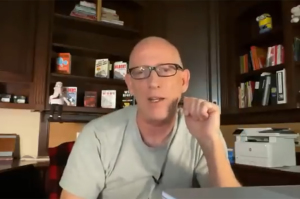Federal Reserve to Extend Near Zero Interest Rates to Help Economy
The Federal Reserve has announced on Wednesday that it will maintain its record-low interest rates in an attempt to promote economic growth and steady inflation rates.
The Federal Open Market Committee (FOMC), which is the Federal Reserve's monetary policy-making group, has agreed to accommodate recent economic growth and have decided to keep interest rates for federal funds at 0 to 1/4 percent, according to a press release from federalreserve.gov. They said that economic conditions are likely to warrant exceptionally low levels for the federal funds rate at least through late 2014.
Due to the recession, the Federal Reserve cut federal funds rate to near zero in December 2008.
The FOMC feels that by keeping the record-low interest rates, they will support a stronger economic recovery and help ensure steady inflation rates. They set an inflation target of 2 percent.
The FOMC also suggests that the economy has been expanding moderately and there are indications that the labor market is improving.
However they cite the fact the unemployment rates are still high, investments have slowed down and the housing sector remains depressed. Seeking to foster maximum employment and price stability, they predict keeping low interest rates will spark modest economic growth in the coming quarters and a decline in the unemployment rate.
Chief fixed income strategist for Janney Capital Markets, Guy LeBas, said that the extension of the low rates were anticipated, according to ABC News. He says that the effects will be minimal, while car loan and mortgage rates will continue to decline.
"That's such a modest stimulus to the consumer wallet," LeBas said. "Mortgage rates have fallen so much since 2006. The majority of rate stimulus has already taken place."
Ben Bernanke, Federal Reserve chairman, said that the 2014 timeline is their "best guess." He added that their ability to predict beyond 2014 is limited and if economic conditions change, the time frame will also change, according to msnbc.com.
"Unless there is a substantial strengthening of the economy in the near term, it's a pretty good guess we will be keeping rates low for some time," Bernanke said.
Forecasters predict the U.S. economy grew at a 3 percent annual rate at the end of 2011, and the Federal Reserve is looking for a 2 percent growth for 2012.
.



























